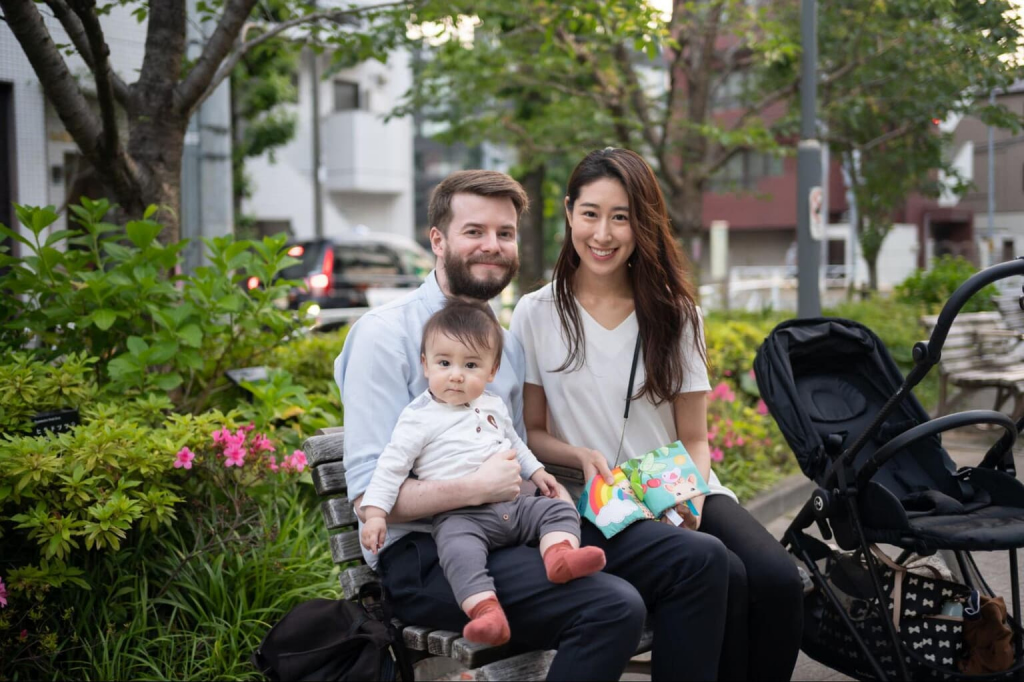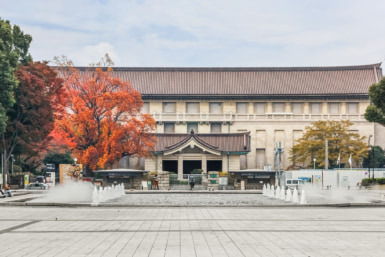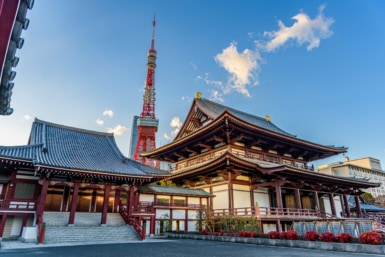Being a first-time parent is a roller coaster of emotions ranging from the excitement of nurturing a family to the general anxiety of “doing it right.” In collaboration with Saraya, a leading manufacturer of baby care products in Japan, Tokyo Weekender is introducing six new and expecting families and inviting them to talk about their experiences being pregnant, giving birth and being a parent as a foreign resident of Japan.
Read our last interview with new mom Marion Gouilly.
This time, TW caught up with Jim and Hikari Dennet in Tokyo’s Nakameguro neighborhood for a quick chat about how their lives changed with the arrival of baby Léon.
Pandemic Pregnancy and Birth
Jim has been living in Tokyo for two years. He arrived in the country in the first year of the pandemic, taking on a teaching gig in the city. Hikari is currently a full-time mom.
They share how giving birth during Covid-19 came with its own set of challenges. “I had to give birth wearing a mask, actually,” says Hikari. “And without me,” Jim adds.
“I had to be in the room alone,” Hikari continues. “And I didn’t get to see [Léon] until he was a week old,” says Jim.
In Japan, new mothers often stay in the hospital or clinic for five to seven days. Hikari recalls that it was difficult to get to know and learn how to take care of her newborn without the support of her partner. Thankfully, once out of the hospital, she was met with a great support system, which included her mom too, who visited frequently and volunteered to help with daily tasks.
While still learning the ropes of parenthood, Jim and Hikari have already started the lengthy process of finding a hoikuen (daycare). “Not anyone can just join a hoikuen,” says Hikari. “You have to get points in your area.” Jim mentions they do, however, join in local meetups where families with children of similar age can play together. “This is one of the first steps of [Léon] trying to get used to playing with other babies.”

To Be or Not to Be Bilingual
Jim and Hikari aren’t particularly picky about the type of daycare, though they lean towards signing up their son to a Japanese hoikuen. They are hoping, however, to introduce both languages (English and Japanese) to Léon from an early age. The couple is even considering spending a few years in Europe in the near future. But for now, they believe it’s vital to get down to the basics of Japanese. While it is untrue to claim that Japan is a monolingual or monoethnic country, Japanese is undeniably the most used language in the country.
“My plan is that Jim and Léon can learn Japanese together,” says Hikari, laughing. She continues mentioning that Jim does read to their son some bilingual picture books, hoping this way, their son can get used to switching between one language and the other early in his development.
When raising mixed-culture children in Japan, international couples often struggle with deciding which language to teach in what context. “I speak to him in Japanese when I’m just with him,” says Hikari. At home, the couple speaks predominantly English.

arau.baby’s Tooth Gel
As first-time parents, Jim and Hikari spent many hours learning how to prepare and take care of their baby. Fostering a safe, comfortable and enriching environment is their top priority. This includes having a trusty toolkit of products.
Part of their cleaning and hygiene range, arau.baby’s tooth gel is ideal to use from the first day your baby starts to grow teeth. Made without the use of additives or abrasive and foaming agents, this gel is made from edible ingredients and with a subtle natural mandarin flavor, which makes it a safe option for babies who cannot yet rinse their mouths.
“We’ve tried different brands but I like how [arau.baby’s tooth gel] is thick,” says Hikari. She says it’s an easy product to have on the go and that the simple ingredients list offers peace of mind.
Sponsored Post









